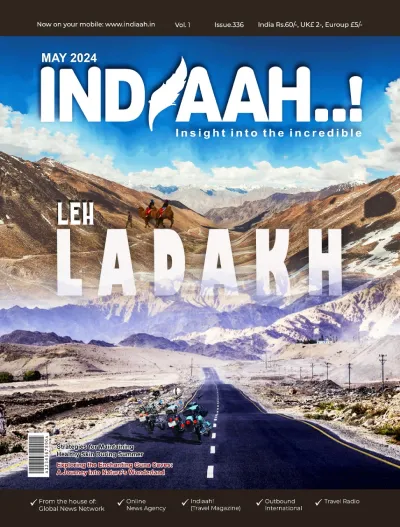
Tourism Day at COP29 brought together global leaders, policymakers, and stakeholders in Baku, Azerbaijan to discuss tourism’s role in addressing climate change.
On November 20th, gathering tourism ministers, high-level officials, and international organization representatives from nearly 30 states, the event included the signing of a Letter of Intent between the State Tourism Agency of Azerbaijan and UN Tourism.
This agreement strengthens collaboration on the Enhanced Climate Initiative for Tourism, establishing a global partnership platform to promote low- carbon, sustainable tourism practices.
Azerbaijan also announced its official endorsement of the Glasgow Declaration Initiative on Climate Action in Tourism, committing to developing comprehensive climate action plans, prioritizing decarbonization and regeneration, and aligning with international climate goals.
This milestone reinforces Azerbaijan’s leadership in sustainable tourism and its alignment with the COP29 Declaration on Enhanced Climate Action in Tourism, endorsed by more than 50 countries and 8 non- state actors.
The declaration provides a framework to integrate tourism into global climate strategies,
with a focus on policy enhancement, science-based metrics, decarbonization, and global
partnerships. In his closing remarks, Fuad Nagiyev, Chairman of the State Tourism Agency of Azerbaijan, expressed confidence that the recognition of tourism’s role in addressing climate change at COP29 would leave a lasting legacy for future COP events and that the number of countries endorsing the declaration would continue to grow.
Another highlight was the launch of the Net Zero Roadmap: Second Edition by the World Travel Tourism Council (WTTC), revealing a 27% increase in businesses setting climate targets over three years.
Highlights included advancements in Sustainable Aviation Fuel (SAF) and practical guidance for small and medium-sized enterprises to access green financing and meet sustainability targets. Additionally, as part of “Tourism Day”, three high-level thematic roundtables followed, focusing on key areas like measurement and decarbonization, regeneration (adaptation), and finance and innovative solutions. These sessions aimed to foster collaborative dialogue, highlight practical solutions, and share best practices to inspire transformative changes in tourism policies and practices.

